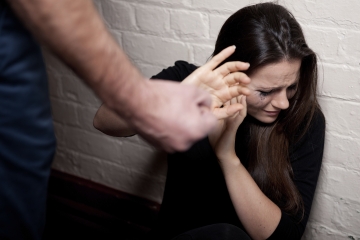What is Grief?

Although grief is generally associated with the death of a person or animal, it has a much broader meaning. Grief refers to a deep sorrow or sadness caused by loss, suffering or disappointment. A person can feel a deep sense of loss whenever an event or situation drastically changes their lifestyle, or they haven’t achieved what they had set their heart on eg.
- Death of a loved one
- Loss of family pet
- Relationship conflict
- Separation/divorce
- Loss of one’s job
- Loss of promotion
- Failure in exams
- Injury or other medical problem causing loss of normal quality of life
- Child leaving home (often referred to as the ‘Empty Nest Syndrome’)
Homesickness is a form of grief not widely recognised as such in the general community yet it can cause extreme distress to those who yearn for family, friends and lifestyle in their “old” country, state, or suburb. Seek Help Early to Avoid Deepening Depressed Mood – Inquire Now. If you find yourself feeling so ‘down’ that it is difficult to function on a day to day basis, Phone Me Now on 9300 6026 to help you.
Common Symptoms of Grief
– Loss of appetite or overeating
– Difficulty sleeping
– Lack of concentration
– Difficulty making everyday decisions
– Moodiness, irritability, sadness, or depressed
– Headaches or other aches and pains
– Little interest in life generally
People may also experience:
– heart palpitations
– tightness in chest
– shallow breathing with the occasional sigh
– stomach discomfort
– or many other symptoms of stress.
Everyone is different so please be aware of your own symptoms and seek help early. Please call me on 9300 6026. I am here to help you.
People Grieve Differently
Adult males, females and children may grieve in their own personal way. Understanding these differences can help their greiving process. For some, crying is quite a healthy expression of grief as it releases built-up tension but needs to be monitored over forthcoming weeks as this could be a sign of pending depression. But not everyone cries, some may bottle up their feelings and not know how to express how they feel, if you are concerned, please seek help early. It is possible too that a person may return to their normal life quite quickly following a personal loss and feel that they have coped very well only to find that a few months (or even a few years) later, symptoms of grief may surface.
Common Myths About Grief
If a person appears to be reasonably happy and coping OK on the “outside” it is often assumed by those around them that they are coping well with their grief and loss. Not So! A grieving person may be able to put on a brave face for the outside world but inwardly they are often being torn apart by feelings of:
– emptiness and loneliness
– frustration or anger
– sadness, depression or isolation.
– Sometimes feelings of guilt overwhelm them.
– A state of confusion is very common.
Another myth is that the grieving stage should last only 3 months or 6 months, or 12 months, etc. Grief knows no time restraints. For some the feelings of Grief do heal with time but may re-surface again for a short while as an anniversary or a special event comes around, rekindling old memories. For others there is no respite, their grief deepens and plunges them into despair – they struggle to adjust to their personal loss. Recovering from grief can be a painful process of healing. Seek help early – contact me now to avoid your depressed mood deepening into despair.





